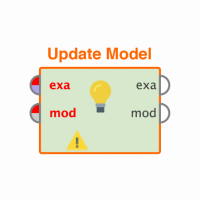Word count in excell column
 Contributor I
Contributor I
Hi All
I am trying to get a word count for words in a text column in excell data sheets.
I have used the following to create a word list
Read Excel -> Select Attributes -> Process documents from data
and tokenised the process docs data
This gives me a list of words and if they are used in the column as follows
Incident id Password Account Reset Computer outlook Crash
INC1 1 1 1 0 0 0
INC2 0 1 0 0 1 0
INC3 0 0 0 1 0 1
However what i now need to get to is a count of the words as follows
Password 1
Account 2
Reset 1
Computer 1
Outlook 1
Crash 1
Whats the best way of returning these results?
This will allow me to quickly identify words used in the data that do not hoit the threashhold of number of times used. for example the data set i have has over 75000 different words used but i am only iterested in any word that has been used 25 times or more. i will then be able to add these words to the 'filter stopwords (dictonary)' easily
Best Answer
-
 Thomas_Ott
RapidMiner Certified Analyst, RapidMiner Certified Expert, Member Posts: 1,761
Thomas_Ott
RapidMiner Certified Analyst, RapidMiner Certified Expert, Member Posts: 1,761  Unicorn
Unicorn
I see. So then you should output the WOR port on the Process Documents from Data operator. That is the WordList port and it will give you a list of how many times the words occured.
if you want to save this data back to Excel, then attache a WordList to data operator to the WOR output side and Write Excel.
1


Answers
In this case I would use an Aggregate operator instead of Process Documents for data. The Aggregate operator will take each column where your word is in the header and sum up all the 1's and 0's and give you the total.
I am using the Process documents to break down the sentence though so
password reset needed for account
once run through the process doc with tokenize is then split down as
Password Reset Account
INC1 1 1 1
When using the aggregate this just gives me
a count of 'password reset needed for account ' as 1
Thank you.
I have been changing all sorts of operators etc and a very simple solution. failed to spot what the different out put does. will now look into these for other operators.
Thanks again